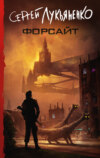Читать книгу: «Sweet Mace: A Sussex Legend of the Iron Times», страница 29
How Sweet Mace awakened on her Wedding-Day
A sensation of intense heat. Then a feeling as if her head were on fire, followed by a terrible pain.
How long this lasted Mace never knew, but she lay there confused and troubled. One feeling, however, was dominant. It was very nearly the time when Gil would be beneath the window, and she must take off that wedding-dress, and send her maid away.
What a mockery it was, that dress, and how hot and clammy it seemed. She shuddered in one of her more lucid moments, as it struck her that it was like a winding-sheet, and she recalled that she had often wished herself dead.
How dark it was, and how steaming and hot. Drip, drip, drip, drip. The noise of dripping water, every drip seemed as if it struck upon her brain, and caused her suffering. Why, it rained!
Well, what matter? What was rain to Gil, who, in his frail ship, dared the greatest storms that blew?
He would come, let the weather be what it might.
Then she seemed to be overcome with sleep, to awake once more with the pain less and her head clearer.
Drip, drip, drip. The rain still falling, and she felt, in a helpless way, that she must have been to sleep again, and began to wonder how long Gil would be.
It was still intensely dark, and very close and stifling, the heat seemed to be more than she could bear.
How long would Gil be? Poor fellow, how cruelly he must have felt it to hear that she was to wed another, and – yes. Why, had not Janet taken off the wedding-dress before she lay down to sleep.
How bad her head had been. She never remembered to have suffered such pains before; and then that terrible thirst! How horribly she had dreamed, too. She recollected now; a horrible dream. First, Gil had clasped her in his arms; then it was not Gil, but Sir Mark; and even now she shuddered at the thoughts of the grim shade which had come next.
But it was a dream consequent upon the excitement she had gone through; and now she had awakened, and it must be time for Gil to be beneath her window.
She did not attempt to rise, for the strange feeling of stupor still held her, and she lay quite still, till the thought that she might have slept too long came and sent a thrill through her brain, and she started up to listen, becoming conscious of a strange, suffocating odour as of dank, hot mist.
How black it was! She could not see the window, and, with the confused sensation of one waking in the darkness, she sat gazing about and listening.
Still that ceaseless drip, drip, drip, of water, but the gurgle of the water-pipe that went down by the side of the gable was not there, and it suddenly struck her that she could not hear the familiar rushing noise of the race, where the water hurried towards the wheel.
She stretched out her hand to rise from the bed, and it touched something rough and hard, making her withdraw it, but only to stretch it forth again and find that she was touching wood and roughened stone.
“Where am I?” she said, softly; and as she spoke she made out tiny sparks of light.
“Gil’s signals!” she cried. “But why does he show them now?”
She tried to get off the bed, but no bed was there; and, after feeling about for a few minutes, she clasped her hands to her head.
“What does this terrible silence mean?” she faltered. “Where am I? Where is Gil?”
There was the slow drip of the water for answer – nothing more; and she tried to recall the past.
“I have been to sleep,” she said, “heavily asleep: and yet I don’t know.”
She tried to collect her thoughts, but seemed to grow more confused.
“I must have been very ill,” she said, at last. “And it began directly I had drunk of that water. But how long is it ago? And why is it so dark? Where am I?”
Weak and prostrated by the terrible shock she had suffered, a curious sensation of stupor overcame her once more, and she crouched down to save herself from falling, as she dropped into a feverish sleep.
When she awoke again her head was clearer, but she was terribly weak. It was dark as ever, but the suffocating feeling had gone, and she could no longer see the signal lights, but the peculiar drip, drip, of water was there.
“I must have slept again long past the time when Gil would come,” she said, with a wild feeling of yearning for him; and now again she tried to make out where she was.
“I must be mad!” she exclaimed in a despairing tone, and she started, for her voice seemed followed by a hollow whispering murmur, that sent a shudder through her frame.
Crouching down once more, she waited with eyes and ears on the strain, but still there was nothing to be seen, no sound to be heard but that ceaseless drip, drip of water that fell with a faint musical plash somewhere hard by.
But her senses were gradually growing clearer, her perceptions more vivid, and she tried to make out what was the meaning of a peculiar heavy odour.
“It is powder!” she exclaimed, with a shudder. “Can there have been a mishap while I slept?”
She paused, trying to think, and her senses grew clearer still.
“Yes, it is powder; there must have been an explosion;” and she recalled the strange, dank, pungent odour that she had often breathed when some accident had occurred.
“But when? How could the powder have fired?”
She tried hard to think it out: but her mind was still too confused, and in a helpless manner she groped her way in the direction of the dropping water, till she felt a splash upon her head, and, stooping down, plunged her hands into what seemed to be a deep, cold pool.
With the avidity of one perishing from thirst, she scooped up the water and drank again and again, each draft she took seeming to infuse new life within her veins; and, at last satisfied, she tried to master the horrible feeling of dread that was overpowering her, and to make out her position.
“Let me go back,” she said, forcing herself to the point. “I will not be alarmed at what is perhaps some trifling accident. Now, then – I went to my bedroom to be ready when Gil should come. I was feverish and thirsty, and I drank from the jug upon my table. Then I grew worse, and Janet came to try on my dress. I must have lain down and had some frightful dream.
“Yes, I remember it now: and I tried on the dress in a half-stupefied way. Nay, it must have been Janet as I lay half asleep, half mad —
“Oh, God!” she moaned, “am I half mad now?”
There was a hollow, echoing whisper, and she cowered there trembling for a time, but, recovering, she forced herself to go on.
“I was lying there ill and quite asleep, and – yes – no – yes – I have some recollection of cries – a terrible shock – and – it must be – it must be.”
She pressed her hands to her head, and rocked herself to and fro, for her reason was on the verge of being shattered, so horrible were her thoughts.
By degrees, though, she grew calmer, and she once more tried to unravel the mystery of the thick darkness around, and to carry this out she again drank from the pool. Then her hands touched stones and timber; and at last, after a long struggle, she fully realised the facts. There could be no doubt of it, for she recognised again the peculiar odour of the powder.
This had come while she slept, then, overwhelming her so suddenly that she had not awakened from the stupor in which she was plunged. The powder had exploded, and she must have fallen with the ruins down into the vault where her father had a store.
She made a brave struggle against the feelings that seemed to bear down with overwhelming violence, ready to snatch her reason away, but she was only weak, and at last, with a burst of hysterical sobbing, she sank back completely overcome. It seemed as if the drugged sleep into which she had been plunged by Mother Goodhugh’s distilments had returned, for her reason became overclouded, and then all was blank.
It was like awakening once more in the utter darkness that she became conscious of the drip, drip, of the water from the roof, as it fell into the pool that lay somewhere near her feet.
Again she had to fight her way to a knowledge of her position; and now, with her head far clearer, she became fully conscious that this was no dream. The idea of death or madness grew weaker, while that which pointed to some terrible explosion and the destruction of the place gained better hold. The odour of the exploded gunpowder grew so faint as to be scarcely perceptible, but it was still there, and had she wanted further evidence she found it upon touching some of the stones, for her hands were damp and clammy with the reek that would have been black, for she was too well versed in her father’s trade not to be certain upon such a point.
There was relief even in this, for in spite of the horrors of her position, this common-sense knowledge relieved her mind of the morbid terrors that had been ready to sweep away her reason, and set her thinking of escape.
The knowledge that she was literally buried alive was almost more than she could bear at times; but, us her brain grew clearer, hope began to dawn life a soft, pale ray amidst the real and mental blackness all around.
There was no doubt now: the Pool-house had been destroyed by a terrible explosion, either of the powder in the cellar stores or by some calamity outside; and, shivering with horror, she gave way for the moment to the superstitious belief that it was a judgment upon her for not having faith that the wedding would be put off. She smiled, though, directly after, at the absurdity of the idea, and began to wonder how those she loved had fared.
Gil? Had he been near the place? And her father, what of him – was he safe? Janet, too, poor girl! She hoped that no ill had overtaken her.
Then she shuddered, for the idea had come upon her that Sir Mark might have suffered, too, and be even now alive or dead within a few yards of where she lay.
In spite of a great effort she could not keep from shrieking aloud at this idea. She crouched listening, almost expecting to hear step or word, and, in place of being ready to welcome them, she was prepared to turn and flee from what, instead of seeming like a companionship, bore the aspect to her of another frightful calamity.
Then, with her mind upon Gil, and the feeling strong that those above must be making a search for her, she felt that she ought to make some efforts to let them know her whereabouts.
She raised her voice, and cried loudly – “Gil – father – help – I am here!” But there was no reply to her wild cry, no sound of iron bar or pick removing some heap of stones, and in spite of her efforts she could do no more than sob as if her heart would break.
And now, as if to give her mental relief from the horrors that she had passed through, came long periods of sleep and dreams of happy times – bright, sunny skies, the waving trees, and flowery meads. Gil was with her, and they were fishing once more upon the lake.
It seemed to be spring-time, the time of love and hope and joy; and in fancy she saw again the waving woods, the silvery bosom of the lake dotted with broad green leaves, waving sedges, and the silver and golden chalices of the lilies starting up from the water as if held out by some pixie’s hand. There, too, were the distant hills, and the empurpled heathery waste, where the golden gorse grew so densely. The meadow with its waving grass ready for the scythe. The old garden lush with flowers and advancing fruit. Its round-topped beehives, the pleasant sheltered seats and grassy walks; and then the bright scene seemed, dream-like, to fade away in the rich soft glow of evening, and she was once more at her window gazing, but blushing and happy with expectancy, for there, out on the far green bank, shone the signal lights of four glowworms, and directly after there was a noise, and a voice so deep and clear came up, making her heart beat as it uttered her name.
Yes, there it was; he called her; and with her hands pressed to her heaving bosom she answered him back —
“Yes, yes, Gil – love – I am here.”
She started up with straining eyes, so real did it seem, and then sank back sobbing bitterly, for it was but a dream. And so was this noise of falling stones and crackling wood, with the rush as of a mass of broken fragments that had crumbled down beside her – all a dream, from which after three weary days of pain she did not care to make the effort to rouse herself. For the Pool-house had been destroyed, and she must be dead, even though Mother Goodhugh’s voice had come to her, perhaps to curse. For that was Mother Goodhugh calling to her in this dream, bidding her rise and come forth, and live again, and then all was blank.
Blank to Sweet Mace, but no dream, for her cries had been heard by the old woman, as she haunted the ruins by night, picking out little objects of value, and toiling from the first to reach poor forgotten Janet, an object that kept her busy, for she could not rest till that was done. The sixth night had come before she had been able to drag away a sufficiency of the débris to reach the imprisoned girl. She had not dared to summon help from the dread she suffered lest Sir Mark’s men should seize her once again; and when at last she succeeded in dragging the sufferer from her living tomb, and had laid her upon the ground hard by, there was none to see her in the grey of the early morning staggering with her burden to her lonely cottage in the lane.
How Mother Goodhugh missed her Revenge
“Dead, and they’ve buried her!” cried the old woman, as she stood beside the bed, whereon she had lain Mace. “Dead, and they’ve buried her; and Jeremiah Cobbe can feel now what it be to lose one that he loves!”
“Let him feel it,” she snarled, “let him feel it, and gnaw his heart for a time. I’ll tell him naught.”
Then she glanced uneasily at the door, and drew the curtain that screened her bed.
“No one can see her now,” she muttered. “I’ll keep her as long as I can. She be weak and half-childish with what she has gone through. Let her rest; but I’m glad she be not killed.”
A feeling of satisfaction glowed for a time in the old woman’s heart, but it was mingled with annoyance that, after all, Jeremiah Cobbe would know rest, while she could never recall her dead.
As the days glided by, to her surprise Mother Goodhugh found that Mace did not recover. She partook of food mechanically when it was offered to her, but she did not speak, only looked vacantly about her, and seemed to be without even the power to think.
“Why should I lose my revenge?” thought the old woman. “Why should I even let him think that she lives? It will be another to keep until he finds her out, and that may be months first, if she stops as she be now. But I can keep her easily,” she said with a chuckle, “since corn grows on the moonbeams, and meal can be had for all my wants from out the earth.”
A month had gone by, and Mace showed no sign of being roused from her dull, apathetic state. She made no attempt to move, but sat where she was placed, gazing straight before her, and never a word passed her lips. Whether the old woman was by her or she was away on some errand, it was all the same, Mace stayed where she was left, unseen by a soul, for since the explosion at the Pool-house no one had cared to go near Mother Goodhugh, and but for her foresight she might have starved.
But the old woman had a means of keeping body and soul together that people little dreamed of, for one day, while herb-gathering in the woodlands, far away behind the founder’s house, she had kicked against a fragment of iron, which proved to be a portion of a shell; and, passing further in search of more, she came upon a hole in the sandstone rock beside the scarped mass that rose behind the Pool-house.
Such a place had its interest for her; for, by the fragments of iron about and the blackened appearance of the rock, she could tell that it was the work of one of Jeremiah Cobbe’s pieces of ordnance.
Parting the ferns and tangled growth with her stick, and muttering a curse or two upon him and his belongings, the old woman found that there was an opening large enough to pass through; and, investigating further, she could see that the great shell had broken through what was but a thin crust of rock, and that within there was a narrow passage-like opening, worn apparently by the waters of some ancient stream.
Another day she examined further, for the place interested her, and she penetrated some distance and returned.
Another time she came, and brought a lanthorn to search further, for anything bordering on mystery was valuable to her, ending, after winding in and out for some distance, by coming to the conclusion that this was the place of which Abel Churr had spoken – that she had long sought in vain, and that she knew Gil Carr’s secret, having hit upon another entrance to his store.
It was a long and tedious way in, but that mattered little to her; while, ignorant of the fact that he had been the means of breaking a way into his own treasure-house, Gil Carr duly, as he believed, sealed it up and set sail.
Here one night, when the fear was upon her that Mace might be discovered at her cottage, and the malignant fit was stronger than usual, Mother Goodhugh brought the helpless girl. A touch of the hand was sufficient to lead her where her gaoler willed, and, docile as a child, Mace accompanied her to what was hereafter to be her prison, whose dark shadows seemed to accord with her helpless state; and here she would sit and seem to doze away her life.
It was a safe place, only visited by the old woman at night, and she found it easy to feed her prisoner from the ship-stores; but now and then a fit of remorse would seize upon her, and she would, on leaving the place, resolve to restore the poor girl to her home.
A dozen times over she threw herself in Jeremiah Cobbe’s way to tell him all, but the sight of the founder seemed to raise up gall and bitterness in her heart, and she went away chuckling and laughing.
“Let him suffer a little longer – a little longer,” was her cry. “Some day the girl will recover her senses, then I’ll speak.”
But the time flew by, and sense was as it were dead in Sweet Mace’s brain; while, having gone so far, Mother Goodhugh dreaded at last to bring her back. There were strange rumours afloat about her, and her position was not so safe as it had been of yore. So in utter fear she would fasten up her cottage and take refuge in Gil’s store for days together, dreading lest ill should befall her; but at the end of a week passed in this gloomy abode she would be ready to revile herself for her cowardice, and go back. At these times she was more than ever prepared to own that she could not restore Mace to her father.
“Let him suffer, as I have done,” she would cry again. “She can stay till Gil Carr comes back. Let him take the poor stricken idiot if he will. I’ve had revenge, and a sweet one after all.”
In this spirit Mother Goodhugh would return to her cottage, and the tale of her evil doings grew longer, for there were those who said that she disappeared for days together – none knew where; and that she had always meal in plenty, while the miller swore none ever came from him, and that she was a witch indeed.
How Croftly cut the Hay in the Two-Year Stack
There was a great deal of talk about punishing those who had rescued Mother Goodhugh from the flames; but Sir Mark was away with his wife, and soon after his marriage, being somewhat of a favourite of the British Solomon, he was appointed to a diplomatic post at one of the continental courts, and when Sir Thomas Beckley took his first steps to vindicate the insult offered to the law he received so broad a hint that he might suffer bodily for his interference, that he quietly shut himself up in his old house, surrounded by the carp-haunted moat, and took walks upon its bank to give the gaping, staring fish a model that they might study for their benefit at will.
In fact, the rescue of Mother Goodhugh was half forgotten in the news that was spread by the superstitious that by her subsequent death a spell had been broken, and Sweet Mace had been set free and had returned to life.
For by degrees she was restored, but it was only by long and patient nursing. In the latter part of her imprisonment her faculties had become dulled, and the shock had produced a semi-torpid state that had its effect upon her mental powers, which were slow to recover their tone. Gil was ever by her side, though she did not know him or her father; but, after a month’s prostration, during which she had hardly left her couch, she began to fight her way very slowly back to strength.
Tender nursing prevailed, and, could her health, drunk in flagons of ale, have given it back sooner, Master Peasegood would have insured her the most robust of constitutions months before she was seated in the old garden, an object of curiosity to all who saw her, with the face of twenty and the silvery hair of three-score and ten.
But the ashy pallor gave way to the returning hue of health, and the rigid, fixed features became softened and rounded. It was Sweet Mace’s old face again by the next summer, all but a couple of deeply-marked lines in her forehead – lines of care and thought which still remained.
The founder sighed even in his joy at her return, for still there was something wanting.
“Nay, Gil,” he said, sadly, “thou hast brought me back the body of my darling, but thou hast not brought the spirit. She smiles sadly and gazes at me when I speak, and that is all.”
“Yes, that is all,” groaned Gil; “she knows me no longer.”
“Poor lad, poor lad!” muttered Master Peasegood, who was present; and he drowned his sigh in a flagon of ale.
“Art going to rebuild the old house, now?” said the parson.
“Ay,” said the founder, “and at once. I have my hopes that the sight of the old place, made as near like as can be, even to the trees, may do the poor child good, for she seems at her best when I take her round the garden.”
Gil looked up curiously, for a thought had struck him; but he said nothing; and, on the founder proposing that they should go and see the men digging the foundations out, he walked with them to the old place.
As they walked down to the garden, Gil’s mind ran a good deal upon the thought that had occurred to him, but he said nothing, and waited patiently for his opportunity.
The visit was prolonged till towards evening, when, before returning, the founder walked down the narrow lane by the side of the Pool towards the meadow where Sir Mark had made his first proposal to Mace.
The place was full of memories for Gil, and he sighed as he thought of the bright sweet face he had encountered, and recalled his jealous feelings towards the man who had forced himself into the position of his rival.
But his attention was taken up directly after by the founder, who, with a return of his old business briskness, thrust open the meadow gate, and pointed to the new, sweetly-scented stack of hay just formed.
“What think you of that, Master Peasegood?” he said.
“Truly I am no judge of grass or hay, friend Cobbe, unless it be metaphorically, and for simile’s sake – grown up at noon, cut down at night,” – was the reply. “Ask our gossip, Tom Croftly here.”
“Ay, Tom Croftly is a good judge of grass and stock too, though he is only a founder.”
“I see not why a man may not be a judge of hay as well as iron,” said Master Peasegood, as Croftly drove a horse and rough tumbril through the gate, and along the track to where the old stack of hay stood, with a good quarter of it cut away, waiting the knife.
“Neither do I,” said the founder, smiling as he thought of his own business.
“You hear this, friend Gil Carr,” said Master Peasegood; “why not give up thy roving ways, and settle down to help friend Cobbe. There, lad, the good time is coming: the past forgotten; sweet little Mace will be herself again; and Master Cobbe will be ready to take thee by the hand as son. Faith, and how deftly Tom Croftly handles that great blade, and cuts the hay in squares. Were I a fighting man, methinks that would be a good weapon to have in battle. Heyday! what ails the man? Does he want to break his neck?”
For Tom Croftly suddenly threw up his hands, leaped some eight feet down into the meadow, and came up panting and with his forehead bedewed with sweat. His eyes were staring, and his countenance ghastly, while for a few moments he could not speak.
“Hast seen a ghost, Tom Croftly?” cried Master Peasegood with a hearty laugh.
“Close upon it, master,” gasped Croftly. “Hey, master, but it be terrifying.”
“What is terrifying?” cried the founder.
“That, that,” panted the man. “Lord forgive me; I didn’t know what I did.”
“Speak out, man, speak out,” cried the founder, as the poor fellow began to tremble; and he clutched him by the arm, fearing that some new trouble had befallen his house.
“I can’t, yet, master, it be too terrifying,” gasped Croftly. “The Lord forgive me for doing such a deed!”
“Less of that last, Tom Croftly, and more explanation,” said Master Peasegood, sternly.
“Yes, Mas’ Peasegood, I’ll tell thee,” gasped the poor fellow. “I sharpened up as usual – the big knife, you know – and went to cut the ’lowance for the horse and pony, when I couldn’t have been looking; and he must have got up there to sleep.”
“He? Who? What?” cried the founder.
“It’s not I as can say, master,” stammered the poor fellow; “the knife went down hard, but I thrust the more, and then, taking up the truss of hay, his head rolled down.”
“What?” roared the founder.
“Heaven forgive me, master,” cried Croftly, sinking on his knees, “I’ve cut a man’s head clean from his body.”
The founder and Master Peasegood stared at him aghast, as if believing he was mad, but the poor fellow was sane enough; and, on following him to the little stack, there was the horrible truth; but Croftly was relieved on finding his knife had decapitated the dead, and not some sleeping man.
“Was he dead, then?” he faltered, in answer to a few words spoken by Master Peasegood.
“Dead, man! ay, months ago. Heaven have mercy on us, it’s a horrible thing.”
“You’re right,” said the founder, turning away with a shudder; “the poor wretch must have lain down when we were making the stack, and more hay have been thrown upon him. He must have been smothered.”
“Some gipsy, perhaps,” said Master Peasegood, whose broad face looked white.
“Here be a bottle by him,” said Tom Croftly, lifting one from beside the body, “and here be a strap. Why, master, master!” he cried, rising up with a scrap of clothing in his hand.
“What is it, Tom?” said the founder, shuddering. “Come away, man, come away.”
“Ay, I’ll come away, Mas’ Cobbe, but I’ve found out who it be.”
“You have?” cried Master Peasegood, excitedly, as the man opened and smelt the bottle.
“Ay, I have,” said Croftly. “That be strong waters in this bottle; and him as lay down,” he continued, sagaciously, “I say, him as lay down upon that half-built stack was drunk, and the steam of the moist hay stifled him.”
“But who think you it was?” cried the founder.
“Him as was missed,” cried Croftly, triumphantly.
“Thank God!” cried Master Peasegood; “then Gil was as innocent as the day.”
“Innocent – as the day?” cried the founder, in a puzzled voice, as he looked from one to the other. “Poor creature, how do you know? But I don’t understand. Some one who was missed? Good God!” he cried, as a light flashed upon him, and he took a step or two up the short ladder by the stack, and then leaped down. “’Tis Abel Churr!”
























